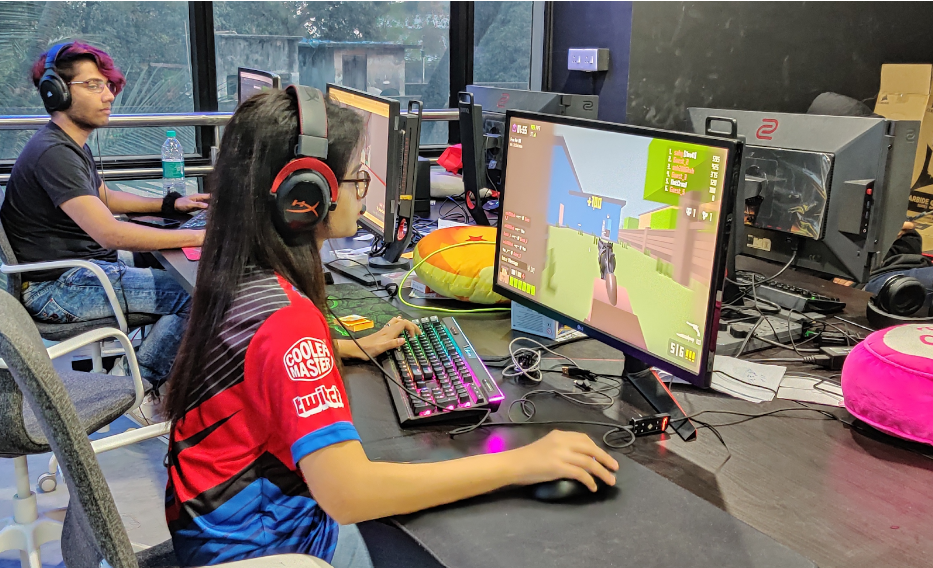The Mistreatment of Women in The World of Gaming
 Image Source: https://thebusinessofesports.com/wp-content/uploads/2022/01/1581075471691-Saloni-Pawar-Indian-professional-female-gamer.jpg
Image Source: https://thebusinessofesports.com/wp-content/uploads/2022/01/1581075471691-Saloni-Pawar-Indian-professional-female-gamer.jpg
Gaming has been a male dominated field for quite a long time, but over the past few years, the world of gaming has experienced notable diversification and growth. Despite the progress that’s been made, gender-based discrimination is still rampant within the gaming community. Misogyny manifests itself in different forms across gaming platforms. Such as harassment, objectification, and perpetuating stereotypes. What this article will explore is the issue of misogyny in gaming, how it has impacted women, and what we can do to solve the problem.
The issue of misogyny in the gaming community stems from deep-rooted stereotypes against women that have existed in society for years being used in games. Female characters in games are often portrayed incorrectly which in turn, enforces ideas of gender-based discrimination (SooHoo, 2022). In games, female characters are often portrayed as highly sexualized objects or damsels in distress (Lopez Fernandez et al., 2019). These portrayals reinforce the idea that women are either decorative or helpless characters in the gaming community. With the existence of portrayals like that, misogyny becomes normalized among gamers and female gamers experience the brunt of it.
The existence of misogyny in the gaming community has severely impacted the experience women have when playing. Female gamers are often subjected to harassment from other players in the forms of sexist comments, threats of violence, doxing, and even assault (Lorenz & Browning, 2020). The prevalence of those behaviors often drives women away from the world of gaming in fear of being harassed. The mistreatment women receive in the gaming community has gotten so bad, to the point where female gamers most often engage in discussions regarding the negative experiences they’ve had in games, instead of positive moments like playing the game itself (McLean & Griffiths, 2019).
As time goes on, thankfully there has been a rise in efforts of challenging the issue of misogyny within the gaming community. Women who are streamers and content creators in the gaming community have helped advocate for a more positive and respectful environment in games. There’s been initiatives from the gaming industry to implement a much stricter anti-harassment reporting system. Even campaigns to increase representation for characters in games. All these efforts being made are crucial to battle the issue of gender-based discrimination among gamers.
Although misogyny is still a prevalent issue in the gaming community, baby steps have been taken to solve the problem. It hasn’t been easy to erase this issue from the community due to how deeply rooted misogyny and sexism is in our society. But by joining the fight and challenging the stereotypes, expanding representation, and creating an inclusive and healthy environment in games, we can gradually overcome this issue. Through collective efforts, we can dismantle the toxic and harmful conditions that have been planted in the gaming community. Working together is necessary to create this bright future in the world of gaming, so we can create a space where gamers can thrive and feel celebrated, regardless of their gender.
References
Lopez-Fernandez, O., Williams, A. J., Griffiths, M. D., & Kuss, D. J. (2019). Female Gaming, Gaming Addiction, and The Role of Women Within Gaming Culture: A Narrative Literature Review. Frontiers in Psychiatry.
Lorenz, T., & Browning, K. (2020). Dozens of Women in Gaming Speak Out About Sexism and Harassment. Retrieved from nytimes.com: https://www.nytimes.com/2020/06/23/style/women-gaming-streaming-harassment-sexism-twitch.html
McLean, L., & Griffiths, M. D. (2018). Female Gamers’ Experience of Online Harassment and Social Support in Online Gaming: A Qualitative Study. International Journal of Mental Health and Addiction , 970-994.
SooHoo, J. (2022). A Systematic Review of Sexism in Video Games. https://doi.org/10.31234/osf.io/xrh36.

